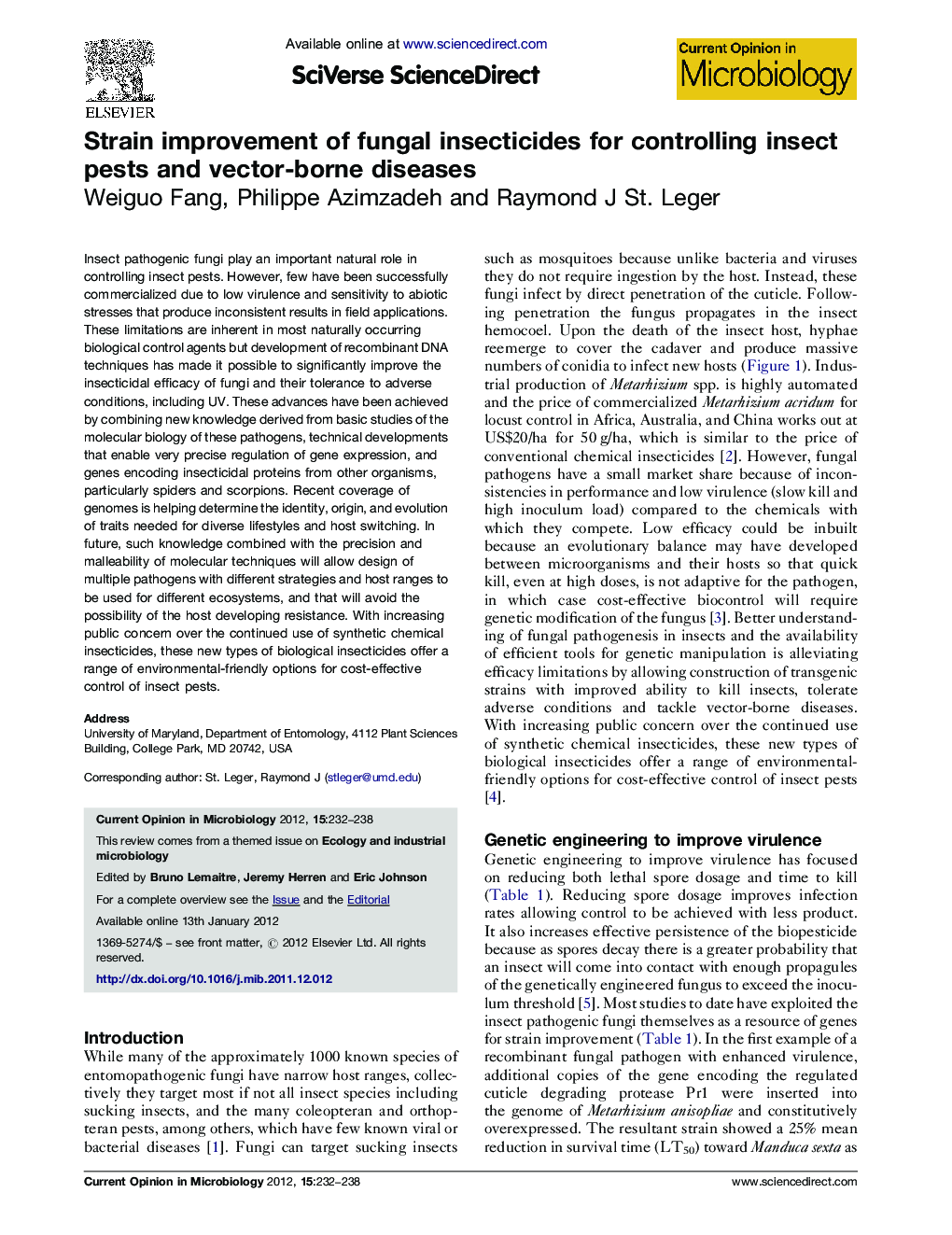| Article ID | Journal | Published Year | Pages | File Type |
|---|---|---|---|---|
| 3399251 | Current Opinion in Microbiology | 2012 | 7 Pages |
Insect pathogenic fungi play an important natural role in controlling insect pests. However, few have been successfully commercialized due to low virulence and sensitivity to abiotic stresses that produce inconsistent results in field applications. These limitations are inherent in most naturally occurring biological control agents but development of recombinant DNA techniques has made it possible to significantly improve the insecticidal efficacy of fungi and their tolerance to adverse conditions, including UV. These advances have been achieved by combining new knowledge derived from basic studies of the molecular biology of these pathogens, technical developments that enable very precise regulation of gene expression, and genes encoding insecticidal proteins from other organisms, particularly spiders and scorpions. Recent coverage of genomes is helping determine the identity, origin, and evolution of traits needed for diverse lifestyles and host switching. In future, such knowledge combined with the precision and malleability of molecular techniques will allow design of multiple pathogens with different strategies and host ranges to be used for different ecosystems, and that will avoid the possibility of the host developing resistance. With increasing public concern over the continued use of synthetic chemical insecticides, these new types of biological insecticides offer a range of environmental-friendly options for cost-effective control of insect pests.
► Review strategies for genetically modifying fungi for virulence improvement. ► Improve the efficacy of fungal insecticides to control vector-borne diseases. ► Highlight recent advances in fungal pathogenesis in insects. ► Discuss the use of genetically modified fungi to control malaria in field.
